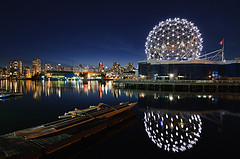Rachael Natoli 10/30/16
INTD 105-19: Scientific Writing About 170 Words
In “Whisper of the Wild”, Kim Tingley wrote about her experience with soundscape ecology in Denali National Park and Preserve in Alaska. She wrote about the influence that man made sound, specifically the disturbances of planes, has had on many species of animals. Although many of the species can adjust the noises they make so they can be heard, the problem is that man made noise makes it difficult for species to hear noises around them that could cause harm. Tingley wrote about her experience with a sound station she helped to set up in Denali that was used to detect the soundscape in the middle of winter.
This experience of being in the completely silent Alaskan winter seemed to really affect Tingley’s perspective on man made sound and also seemed to be something that interested her. If I were to create an experience similar to this I would want it to be related to the effects of pollution on the environment because it is an issue that I am very interested in.
